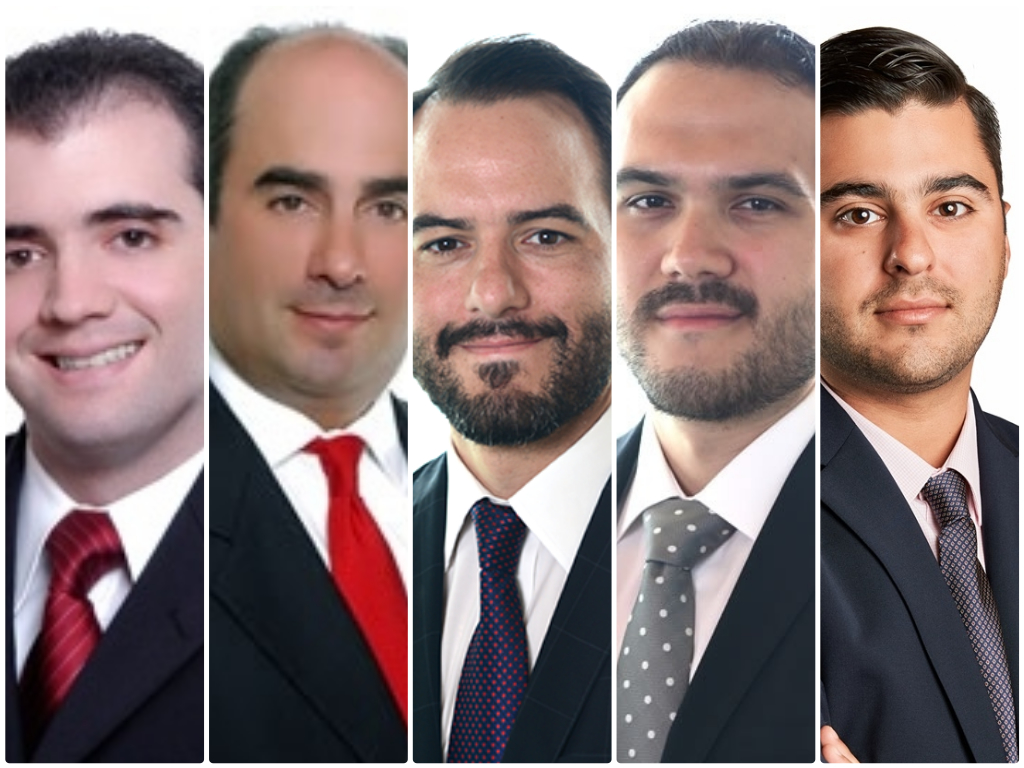Morgan & Morgan asesoró a Mercandú, una startup basada en El Salvador, en el diseño de su estructura corporativa y en una ronda de inversión de US$1,500,000.00 serie Seed (semilla), con el cual lanzaría su plataforma e-commerce para la operación de un marketplace regional a través de un sitio web y aplicación móvil, que ofrecen la entrega a domicilio de más de 150,000 productos
Panamá, 22 de septiembre de 2021. Morgan & Morgan actuó como asesor legal panameño de Mercandú, una startup basada en El Salvador, en el diseño de su estructura corporativa y en una ronda de inversión de US$1,500,000.00 serie Seed (semilla), con el cual lanzaría su plataforma e-commerce para la operación de un marketplace regional a través de un sitio web y aplicación móvil,
- Publicado en Banking Law, expertise, expertise-es, Kharla Aizpurua, Miguel Arias publi_es, Miguel Arias_exp_es, news, Pablo Epifanio
Morgan & Morgan asesoró a Itaú Corpbanca en relación con dos facilidades crediticias por las sumas de US$83,801,622.00 y COP 367,366,730,694.00
Panamá, 30 de noviembre de 2020. Morgan & Morgan actuó como asesor legal panameño de Itaú Corpbanca y los demás acreedores, en relación con dos contratos de crédito otorgados por ciertos prestamistas e Itaú Corpbanca, como agente administrativo, para, entre otros, el refinanciamiento de cierta deuda existente del Grupo Decameron. El primero por un monto
Morgan & Morgan asesoró a Banistmo, S.A. en una oferta pública de bonos por un monto de hasta US$400 millones emitidos por el fideicomiso especial ENA Master Trust
Panamá, 16 de noviembre de 2020. Morgan & Morgan actuó como asesor legal de Banistmo, S.A., en la emisión y colocación de bonos senior garantizados por un monto de hasta US$400,000,000.00, a una tasa de interés del 4% y vencimiento en el 2048, emitidos por el fideicomiso ENA Master Trust, creado por Empresa Nacional de
- Publicado en 2020, Banking Law, expertise, expertise-es, Inocencio Galindo, Jose Carrizo, Kharla Aizpurua, Pablo Epifanio, Projects, Projects-es, Ricardo Arias, Securities and Capital Markets, Securities and Capital Markets_publi, Securities and Capital Markets-es, Securities and Capital Markets-es_publi
Morgan & Morgan asesoró a los accionistas de Unity Group en una reestructuración corporativa y posterior venta de su negocio a Willis Europe BV
Panamá, 12 de marzo de 2020. Morgan & Morgan asesoró a los accionistas de Unity Group, un grupo empresarial con subsidiarias que se dedican al corretaje de seguros en la región centroamericana que operan a lo largo de seis países (Panamá, Costa Rica, El Salvador, Guatemala, Honduras y Nicaragua), en una reestructuración corporativa y posterior
Morgan & Morgan asesoró a MMG Bank Corporation en relación con el primer financiamiento otorgado a una empresa Fintech en Panamá
Panamá, 29 de enero de 2020. Morgan & Morgan asesoró a MMG Bank Corporation como fiduciario de garantía de una línea de crédito otorgada por un fondo de inversión privada a Adelantos Capital Corp. Adelantos Capital Corp. es la primera institución financiera en Panamá que desarrolla toda su operación a través de medios electrónicos, y
- Publicado en Banking Law, expertise, Pablo Epifanio
Morgan & Morgan asesoró en la adquisición de Cemento Interoceánico, S.A.
Panamá, 15 de noviembre de 2019. Morgan & Morgan actuó como asesor legal de los accionistas mayoritarios de Cemento Interoceánico, S.A., una compañía panameña dedicada a la producción, comercialización y distribución de cemento, concreto y productos derivados, con respecto a la venta del 75% de las acciones emitidas y en circulación, a favor de la
Morgan & Morgan asesoró a MMG Bank Corporation en la estructuración del primer programa rotativo de bonos verdes corporativos emitidos en la República de Panamá
3 de septiembre de 2019. Morgan & Morgan asesoró a MMG Bank Corporation en la estructuración de la primera oferta pública en la República de Panamá que consiste en un programa de rotativo de bonos verdes corporativos emitidos por Corporación Interamericana para el Financiamiento de Infraestructura, S.A. (CIFI), por un monto de hasta US$ 200,000,000.00.
- Publicado en expertise, Pablo Epifanio, Ricardo Arias, Securities and Capital Markets
Morgan & Morgan asesoró a Banco La Hipotecaria, S.A. en el registro y emisión de bonos de préstamos hipotecarios por un monto de hasta US$60 millones
Banco La Hipotecaria, S.A., como fiduciario del Decimocuarto Fideicomiso de Bonos de Préstamos Hipotecarios (un fideicomiso emisor constituido según las leyes de Panamá), registró Bonos de Préstamos Hipotecarios en tres tramos por un monto de hasta US$60,000,000 ante la Superintendencia de Mercados de Valores de Panamá, cuyos Bonos fueron colocados exitosamente a través de la
Morgan & Morgan asesoró a Banco La Hipotecaria, S.A. en el registro y emisión de bonos de préstamos hipotecarios por un monto de hasta US$40 millones
Banco La Hipotecaria, S.A., como fiduciario del Decimoquinto Fideicomiso de Bonos con Garantía Hipotecaria (un fideicomiso emisor constituido según las leyes de Panamá), registró bonos de préstamos hipotecarios en tres tramos por un monto de hasta US$40,000,000 ante la Superintendencia de Mercados de Valores de Panamá, cuyos bonos fueron colocados exitosamente a través de la
Morgan & Morgan asesoró a Banco La Hipotecaria, S.A. en la estructuración de su primer programa de bonos garantizados (covered bonds)
Morgan & Morgan asesoró a Banco La Hipotecaria, SA (BLH) en la estructuración de su primer programa de bonos garantizados (covered bonds) bajo el cual BLH puede emitir bonos garantizados de conformidad con la Regla 144A y la Regulación S de la Ley de Valores de 1933 en serie, periódicamente, hasta un monto nominal máximo









